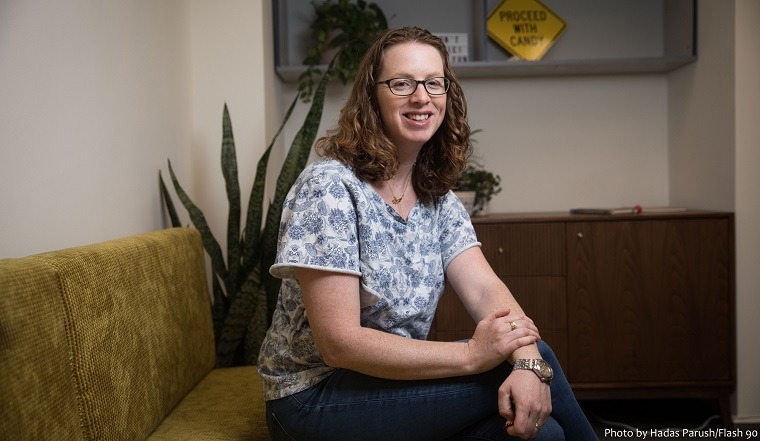
Dr. Moran Yassour joined the Hebrew University faculty in 2018, with a joint appointment at the Hebrew University’s Faculty of Medicine and the Rachel and Selim Benin School of Computer Science and Engineering.
We are never truly alone – we have family, friends, and colleagues. But we also have billions of other close partners, which live within us. These are the bacteria in our digestive system, which are vital to breaking down food we consume, synthesizing vitamins, and teaching our immune system to differentiate between self and non-self. Together these are collectively referred to as our microbiome.
Research has shown that people can have very different collections of types of bacteria in their intestines – thousands of different strains – directly affecting our health, such as our likelihood to suffer from diseases such as diabetes or cancer.
The Infant Gut Microbiome and Infant Health
Dr. Yassour’s research focuses on the microbiome. She studies one of the most basic and fascinating questions about the microbiome: how is this community established in the newborn gut? How do delivery mode and breastfeeding affect the microbiome and, in turn, how does the gut microbiome impact an infant’s health?
To this end, she collects microbiome samples from newborns and their parents, and conducts genetic profiling and a count of the bacteria present. This reveals which genes can be uniquely assigned to specific bacteria. The result is millions of gene reads (DNA sequences). Decipher each patients’ microbiome is an immense task, impossible without computational analysis. Dr. Yassour offers the following analogy:
Suppose I enter a library, remove all the books from the shelves, and shred them into 100-letter snippets. Then I ask you to go through the shreds and tell me which books had been on the shelves. Doing this manually would be impossible. Snippets may appear in numerous books, or simply not contain enough context. This is the power of computational tools. I can sort through the snippets, see what they match, iterate, and narrow down the options – until reaching a match. Eventually, I can recreate the entire bookshelf.
Dr. Yassour applies sophisticated computational algorithms to her “snippets” of sequenced DNA, trying to characterize the microbial population and its functional potential, based on which genes are present.
In particular, Dr. Yassour studies three key issues related to pediatric health: links between of breastfeeding and microbial composition of the microbiome; how the microbiome is related to food allergies; and how cultural differences influence microbiome composition.
Breastfeeding & Microbial Composition
The third most common component in breastmilk are HMOs (human milk oligosaccharides). While indigestible by babies, these sugars feed and sustain the microbes within the gut. By pairing breastmilk and stool samples, Dr. Yassour examines how sugars in the milk affect the composition of bacteria in the intestine and the bacteria’s reaction to the sugars. This would enable baby formulas to better mimic breastmilk – helping formula-fed babies develop a healthier bacterial population.
The Microbiome and Food Allergies
Dr. Yassour is also exploring infant allergies by collecting samples from healthy infants, some of which later developed an allergy to cow milk proteins. By examining the microbial population of these infants, she can search for microbial markers and create a machine learning classifier that may predict such an allergy.
"The microbiome plays an important role in educating the immune system to differentiate ‘self’ from ‘non-self.’ This is, in fact, a philosophical question, since gut bacteria are clearly not ‘self,’ yet we don’t want our immune system to attack these healthy and helpful microbes"
Cultural Differences between Microbiomes
Lastly, Dr. Yassour’s lab has begun a study of Bedouins living in the Negev, asking whether Bedouin infants are born with diverse microbiomes, or whether these develop in response to their lifestyle.
"The Bedouin’s lifestyle is far from western, and we hypothesize that their microbiome is much more diverse. Previous studies have shown great differences between the microbiomes of tribal people in South America and Africa and those living in North America. Hygiene has caused the loss of microbial diversity."
In 2022, Dr. Yassour was awarded the prestigious Krill Prize for Excellence in Scientific Research.
Dr. Yassour's 2019 HUJI Talk is available here.
Dr. Yassour’s lab site can be found here.


